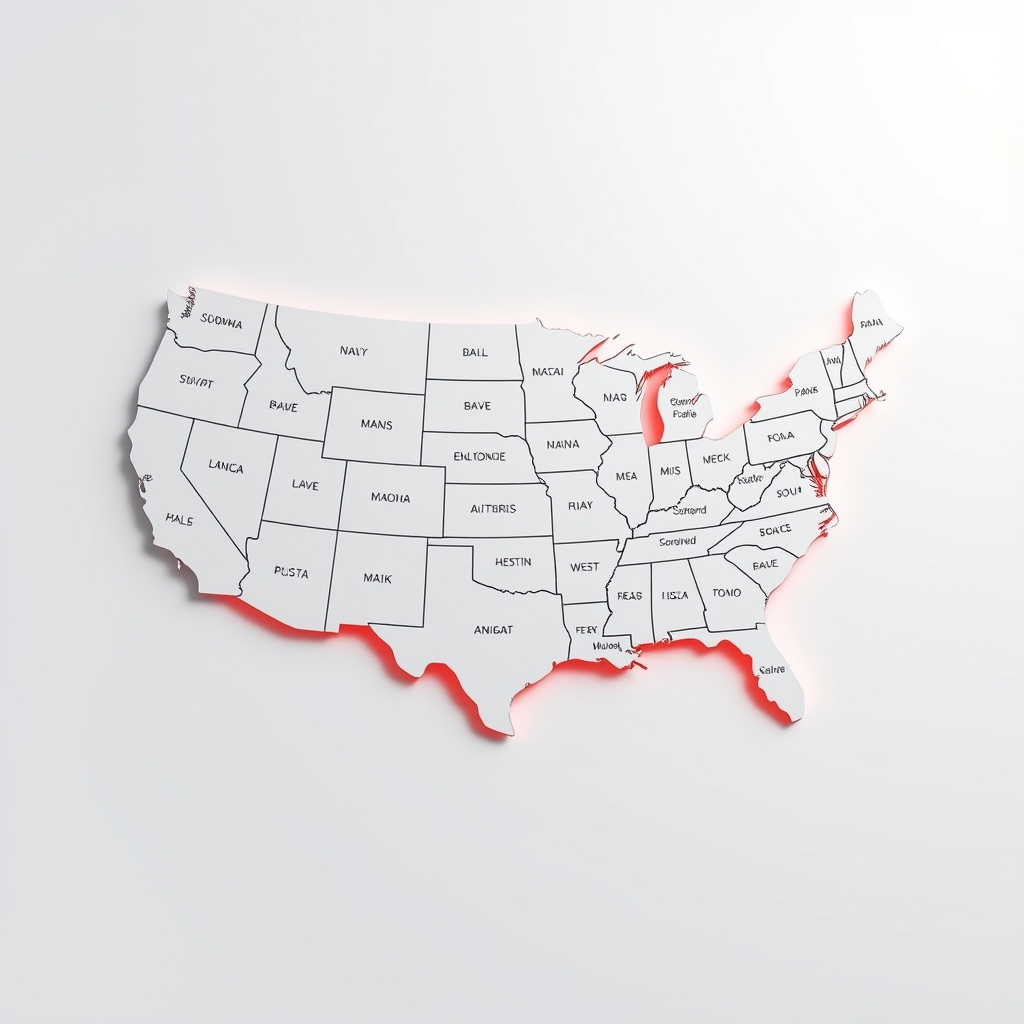Zip Code USA API vs Zip Code Finder API: What to Choose?

When it comes to retrieving location data in the United States, developers often find themselves choosing between two powerful APIs: the Zip Code USA API and the Zip Code Finder API. Both APIs offer unique features and capabilities that cater to different needs, making it essential to understand their functionalities, performance, and use cases. In this blog post, we will delve into a detailed comparison of these two APIs, helping you make an informed decision on which one to choose for your specific requirements.
Overview of Both APIs
Zip Code USA API
The Zip Code USA API is designed to quickly retrieve precise location details within the United States. It leverages a comprehensive database of U.S. zip codes, allowing developers, businesses, and researchers to access accurate geographic information seamlessly. This API is particularly useful for applications that require precise location-based functionality, such as e-commerce platforms, logistics optimization, and market research.
Zip Code Finder API
The Zip Code Finder API serves as a gateway to comprehensive information for every ZIP Code in the United States. It allows users to retrieve details by inputting ZIP Codes directly or exploring locations using city and state parameters. This API is ideal for applications that require demographic details, regional statistics, and geographic coordinates associated with each ZIP Code, making it a versatile tool for address validation, location-based services, and market research.
Side-by-Side Feature Comparison
Get Location Information
The Zip Code USA API offers a feature that allows users to get location information by simply entering a U.S. zip code. This feature returns detailed information about the corresponding city, state, timezone, and geographic coordinates (latitude and longitude). For example, when a user inputs the zip code "90001", the API responds with:
{"zip_code":"90001","primary_city":"Los Angeles","state":"CA","timezone":"America/Los_Angeles","latitude":33.97,"longitude":-118.24}In this response, the fields provide essential data for developers to implement location-based functionalities in their applications. The zip_code field indicates the specific zip code queried, while primary_city and state provide the geographical context. The timezone field is crucial for applications that require time-sensitive data, and the latitude and longitude fields enable mapping and geolocation services.
On the other hand, the Zip Code Finder API provides a similar feature that returns a list of ZIP Code details matching the input parameters. This feature allows users to input parameters such as "zip_code," "city," and "state" to retrieve specific ZIP Code details. For instance, a request for the city "Portland" in the state "ME" might yield the following response:
[{"zip_code": "04101", "valid": true, "city": "Portland", "state": "ME", "county": "Cumberland County", "timezone": "America/New_York", "area_codes": ["207"], "country": "US", "lat": "43.6608", "lon": "-70.2613"}, {"zip_code": "04102", "valid": true, "city": "Portland", "state": "ME", "county": "Cumberland County", "timezone": "America/New_York", "area_codes": ["207"], "country": "US", "lat": "43.6635", "lon": "-70.3026"}]This response provides a wealth of information, including the county, area_codes, and country, which can be particularly useful for applications that require detailed demographic or regional data.
Performance and Scalability
Both APIs are designed to handle a significant volume of requests, making them suitable for applications with varying levels of demand. The Zip Code USA API is optimized for speed and accuracy, ensuring that users receive location data quickly and reliably. Its comprehensive database is regularly updated to maintain data accuracy, which is crucial for applications that rely on current postal code boundaries and geographic details.
In contrast, the Zip Code Finder API excels in providing extensive data for each ZIP Code, including demographic and regional statistics. This API's ability to perform reverse lookups adds another layer of functionality, allowing users to glean insights into the corresponding city and state based on a given ZIP Code. This feature can be particularly beneficial for applications that require detailed demographic analysis or market research.
Pros and Cons of Each API
Zip Code USA API
- Pros:
- Fast and accurate retrieval of location data.
- Comprehensive database covering all U.S. zip codes.
- Simple integration for developers.
- Cons:
- Limited to U.S. zip codes only.
- Less demographic data compared to competitors.
Zip Code Finder API
- Pros:
- Extensive demographic and regional data available.
- Flexible search parameters (zip code, city, state).
- Reverse lookup functionality enhances usability.
- Cons:
- Potentially slower response times due to extensive data retrieval.
- More complex integration compared to simpler APIs.
Example Use Cases for Each API
Use Cases for Zip Code USA API
The Zip Code USA API is ideal for applications that require quick access to location data. For instance, an e-commerce platform can use this API to validate shipping addresses by confirming that the entered zip code corresponds to a valid city and state. Additionally, logistics companies can leverage this API to optimize delivery routes based on accurate geographic information.
Use Cases for Zip Code Finder API
The Zip Code Finder API is particularly useful for applications that require detailed demographic insights. For example, a marketing firm can utilize this API to analyze customer demographics based on their ZIP Codes, allowing for targeted advertising campaigns. Furthermore, real estate applications can benefit from the extensive regional statistics provided by this API, helping users make informed decisions based on local market conditions.
Final Recommendation
Choosing between the Zip Code USA API and the Zip Code Finder API ultimately depends on your specific needs. If your primary requirement is fast and accurate location data retrieval, the Zip Code USA API is the better choice. However, if you need extensive demographic data and flexible search capabilities, the Zip Code Finder API would be more suitable.
In conclusion, both APIs offer valuable features and capabilities that cater to different use cases. By understanding the strengths and weaknesses of each API, you can make an informed decision that aligns with your project requirements.
Want to use the Zip Code USA API in production? Visit the developer docs for complete API reference.
Looking to optimize your Zip Code Finder API integration? Read our technical guides for implementation tips.





